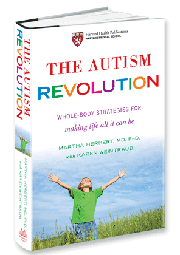Stress refers not only to emotional stress but to challenges at any level of our existence that push our limits — or exceed our capacity to adapt comfortably. Short term stress can be good for learning and for health. But chronic, unremitting stress sets in motion processes that can lead to harm and illness.
Research on stress was pioneered by Hans Selye in his book The Stress of Life, published in 1956. He showed the changes in the hormonal system in relation to stress. Since then we have learned about the role of other systems, particularly the immune system, in stress, as well as the impact of stress on many organ systems — including the gastrointestinal system and the brain — as well as on cellular systems.
Allostatic load (Pubmed-General; Selected sources; allostasis-autism*) is a concept that was introduced in the early 1990s by Bruce McEwen and Stellar. It refers to the cumulative physiological effects of chronic stress. It has been used to refer to chronic social stress by some writers, and to chronic environmental and toxic stress by others.
Total load is a term used in the autism and developmental disability world, particularly by Patricia Lemer, to characterize the collection of challenges and burdens that contribute to autism. These include physical and emotional stressors, nutritional deficiencies and excesses, toxic exposures and body burden, inappropriately oriented learning environments and more. See my blog about Total Load on the Autism Speaks website.
Allostatic load is critical in a systems biology model of cancer and cancer treatment in a cogent review paper by Sarah Knox entitled “From ‘omics’ to complex disease: a systems biology approach to gene-environment interactions in cancer” whose framework is highly pertinent to autism.
In this framework there is no one thing that causes autism (or cancer), but rather the accumulation of a lot of things from risk factors to exposures and experiences that lead the system to a transition or tipping point that transforms it into an autistic state.
*A search of pubmed yielded no papers for (“Allostasis”[Mesh]) AND autis* although this framing of autism comes up in a fair number of conversations.


